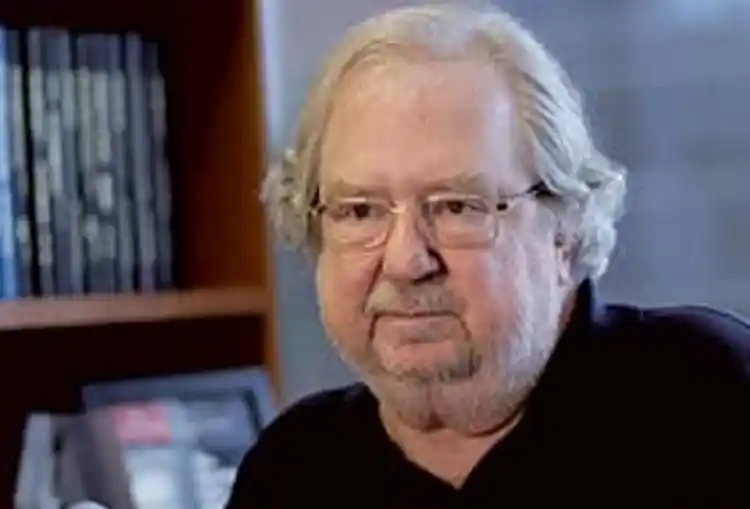Cancer Immunotherapy

Hide Video Transcript
Video Transcript
Female Narrator
A cure -- it's the holy grail for cancer researchers. James Allison's work focusing on the body's own immune system -- called immunotherapy -- has already led to a drug that gives hope to people with advanced melanoma, the most deadly kind of skin cancer. Some experts say this could one day lead to a cure. Jim Allison, PhD
Immunotherapy has really changed the face of cancer therapy. I would predict that it’s gonna become one of the major, dominant therapeutic approaches. Female Narrator
Traditional cancer treatments such as chemotherapy work by targeting and stopping the growth of cancer cells. Unfortunately, healthy cells are often damaged as a result of this process. Immunotherapy doesn’t target the cells themselves, it works by activating the immune system to do the dirty work. Jim Allison, PhD
Cancer Immunotherapy is manipulating your immune system to have it attack cancer. Basically, the idea is that it works by getting the body’s own natural immune system to attack cancer cells much in the same way that it can attack virus infection cells. Female Narrator
Doctors are using immunotherapy to treat metastatic melanoma and also some blood cancers. Will it be as effective with other forms of cancer? Jim Allison, PhD
There’s no reason really why all cancer types should not be susceptible. Because again, these drugs do not target the cancer cell, they target the immune system and unleash it. So you don’t have to think of it as a melanoma drug or a lung cancer drug or anything like that. They treat the immune system. So it’s a totally new paradigm for cancer therapy. I think right now, virtually anybody is a good candidate for immunotherapy. There are a fraction of patients, generally 1 in 4 and 1 in 5 patients respond. We don’t know yet how to predict which those patients are. Female Narrator
So this works for about 1 in 4 or 5 people. Is there a way to make it work for more? Jim Allison, PhD
A combination of drugs have always been found to be more powerful than any single drug and the same is true of therapy. If we put them together, the response rate goes from 25% to roughly each one to over 50%. So the combination is definitely more effective. And there is some very encouraging work of that type that’s coming out in studies in human cancers as well. Combining the new genomically targeted drugs with the immunotherapies. Where you view the drug not as a cure in and of itself, but as a vaccine to initiate an immune response. Female Narrator
What are the benefits with this type of treatment, especially for people with advanced cancer? Jim Allison, PhD
Well, the pros of manipulating the immune system to attack cancer is we know that it yields durable responses lasting for years to decades. Now, there’s actually one patient in the very first trial that’s 14 years out. Now, that doesn’t happen with chemotherapy or other treatments. Female Narrator
Are there any side effects? Jim Allison, PhD
There are, they’re readily manageable and they’re a lot less severe than the toxicities we usually think about associated with chemotherapy Female Narrator
Some people are living a lot longer thanks to being treated with immunotherapy. Jim Allison, PhD
Pretty clearly, a study of 5000 patients and melanoma. 10 years survival and 22 percent. So the goal now and we know it’s doable is to move that survival tail from 20% to 50% to 70% to 80% to 100% if we can. And just going for what I think eventually you can call a cure. 10 years, 15 years, 20 years, whatever and many more types of cancer and that’s the challenge now, it’s not to do that because it’s done. Working with cancer, we know it’s doable. The question is, to be able to do it with more kinds of cancer. It’s going to require a whole change in thinking about how to approve cancer drugs, how to test cancer drugs. Because again, these aren’t really cancer drugs. They treat the immune system. And so it’s an exciting time. 